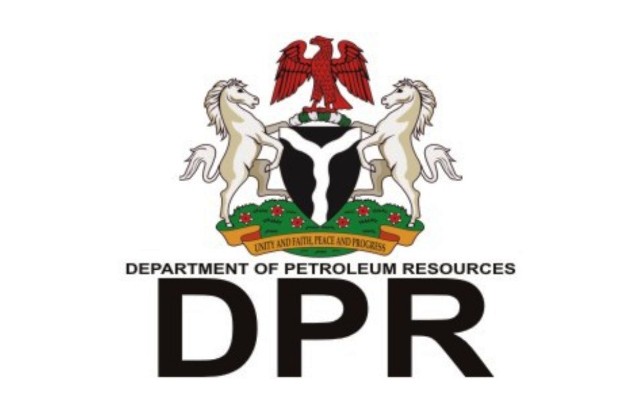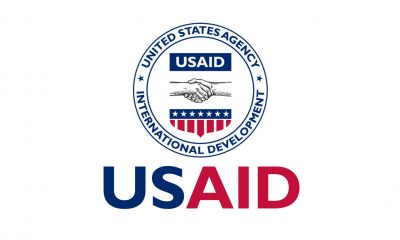Oil & Energy
DPR Urges Filling Stations To Comply With New Fuel Pump Price

The Department of Petroleum Resources (DPR), has urged all petroleum marketers to comply with the directives of the federal government by selling fuel at the N125,00 new pump price.
Zonal Director of DPR in Rivers State, Bassey Effangha, disclosed this in a press statement as a follow up to the full implementation of the federal government’s directives.
The DPR director said all filling station owners were expected to comply with the directives, adding that the DPR as the regulatory agency, was poised to ensure that the new pump price was effective.
He said the agency was already on ground to monitor the filling stations to ensure total compliance.
Meanwhile, some filling stations in Port Harcourt have already adjusted to the new pump price.
The Tide investigation revealed that, Total at Garrison, Eterna at Mile One and NNPC mega filling station at Lagos bus stop now sell at N125,00.
However, some filling stations in parts of Port Harcourt, like Agip at Eleopranwo still sell at the old pump price of N145,00.
The Tide gathered that some of the filling stations selling at the old pump price were those which got products before the pump price reduction.
Some motorists who spoke with The Tide commended the federal government for pump price reduction but urged the relevant agencies to effect compliance.
A commercial motorist, Akanimo Udosen, said he now buys fuel at N125,00, but noted that some filling stations were stilling selling at N145,00.
“I want to commend the government for pump price reduction, but I also want to urge the government to ensure that all filling stations sell at the new price,” he stated.
Another respondent, lgba Sunday, a commercial motorist, also lauded the federal government for the pump price reduction saying, “ What the government has done is good, the fear is that some petroleum marketers will still be selling at the old pump price. I want the government to set up a monitoring team to check the activities of the filling stations.”
Meanwhile, the authorities of the Licensed Filling Stations Owners, National Union of Petroleum and Natural Energy Workers (NUPENG) and the Independent Petroleum Marketers Association (IPMSN) have directed their members to comply with the new directives.
National Treasurer and former Port Harcourt Zonal Chairman of NUPENG, Comrade Alex Agwornwor, who spoke with The Tide, said its members had been given directives to comply with the new directives.
Chairman of the Licensed Filling Stations Owners, Comrade Sunny Mkpe, also disclosed in a press statement that its members have been asked to comply with the government’s directives.
Taneh Beemene
Oil & Energy
Bill Prohibiting Gas Flaring Passes 2nd Reading

The Bill for an act to prohibit gas flaring, encourage commodity utilisation, and provide for penalties and remedies for gas flaring violations has passed its second reading in the House of Representatives.
Sponsored by the Member representing Ikorodu Federal Constituency (APC, Lagos), Babajimi Adegoke Benson, the bill seeks to prohibit the flaring and venting of natural gas, except in strictly regulated circumstances, while encouraging the utilisation of gas resources to foster economic growth and energy generation.
The proposed legislation aims to mitigate the environmental, health, and economic impacts of gas flaring, aligning Nigeria’s oil and gas operations with international climate change commitments.
Offenders, who violate the provisions of the proposed law, would face stringent penalties, including fines of $5 per 1,000 standard cubic feet of gas flared and potential suspension of operations for repeat violations.
Leading debate on the general principles of the bill, Benson said gas flaring has plagued Nigeria for decades, resulting to severe environmental degradation, public health crises, and economic losses while it environmentally, contributes to greenhouse gas emissions, global warming, and acid rain, exacerbating climate challenges.
The lawmaker said public health impacts of the practice are equally dire, as pollutants from gas flaring cause respiratory and cardiovascular diseases, particularly among residents of communities close to flaring sites.
According to him, economically, flaring results in the waste of a valuable resource that could otherwise be harnessed for energy generation or exported to generate revenue.
Benson insisted that the bill was designed to address those issues while bringing Nigeria in line with global standards such as the Paris Agreement on climate change.
“The bill provides for a comprehensive prohibition of gas flaring except in emergencies or when explicitly authorised by the Nigerian Upstream Petroleum Regulatory Commission (NUPRC).
“Operators are required to submit and implement Gas Utilisation Plans, detailing how gas that would otherwise be flared will be captured, processed, or commercialised.
“Offenders, who violate these provisions, face stringent penalties, including fines of $5 per 1,000 standard cubic feet of gas flared and potential suspension of operations for repeat violations. Furthermore, the Bill ensures that communities affected by gas flaring are entitled to compensation and environmental restoration, creating a mechanism for redress.
“Transparency and accountability are integral to the enforcement framework of this Bill. Operators must submit regular reports on gas flaring incidents, which will be audited and made publicly available by the NUPRC. This approach ensures public oversight and stakeholder engagement, fostering trust and compliance.
“Nigeria’s adoption of this Bill positions the country to emulate such success, ensuring a balance between environmental stewardship and economic development.
“The implementation of this Bill will be overseen by the Nigerian Upstream Petroleum Regulatory Commission, which will monitor compliance through regular audits, enforce penalties, and facilitate gas utilisation projects in collaboration with operators and development partners.
“The Anti-Gas Flaring (Prohibition and Enforcement) Bill, 2024, is a timely and necessary response to one of Nigeria’s most pressing environmental challenges. Its provisions are both practical and forward-looking, addressing immediate concerns while laying the groundwork for a sustainable future.
“I urge all Honourable Members to support the Second Reading of this Bill as a demonstration of our collective commitment to environmental protection, public health and economic progress”, he added.
###
Oil & Energy
‘Indigenous Companies To Gain From Shell’s Contract Awards’

Oil major, Shell, has restated its commitment to the development of Nigerian companies through contract awards and scaling up of expertise.
Managing Director, Shell Nigeria Exploration and Production Company ((SNEPCO) Limited, Ron Adams, made the remark while speaking at the Opening Ceremony of the 13th edition of the Practical Nigerian Content forum held in Yenagoa, Bayelsa State, with the theme “Deepening the Next Frontier for Nigerian Content Implementation”.
Represented by the Manager, Business Opportunity, SNEPCO’s Bonga South-West Aparo Project, Olaposi Fadahunsi, he said several benefitting companies had taken advantage of the patronage to expand their operations and improve their expertise and financial strength.
Adams said, “Shell companies execute a large proportion of their activities through contracts with third parties, and Nigeria-registered companies have been key beneficiaries of this policy aimed at powering Nigeria’s progress”.
He emphasized that Shell companies in Nigeria also continued to develop indigenous manpower through scholarship programmes with over 3,772 undergraduate and 109 Niger Delta post graduate scholarships since 2016.
“As we speak, beneficiaries of the 13th edition of the Niger Delta Post Graduate Scholarship awards are pursuing their studies in the United Kingdom. The employability rate of the scheme is high with over 98% of the graduates who won the awards securing employment in the oil and gas industry, academia and Information Technology, among other sectors, within one year of completing their studies”.
He commended the Nigeria Content Development and Monitoring Board (NCDMB) for ensuring compliance with the Nigerian Content Act saying “Nigerian content will continue to be an important part of Shell operations”.
The four-day conference hosted by the Nigerian Content Development and Monitoring Board (NCDMB) and participating companies reviewed progress on the development of Nigerian content pertaining to the implementation of the Nigerian Oil and Gas Industry Development (NOGICD) Act since it was enacted in 2010.
Shell companies in Nigeria are among the more than 700 oil and gas entities that participated in the forum with a strong message of support for Nigerian companies, having awarded contracts worth $1.98 billion to the businesses in 2023 in continuing effort to develop Nigerian content in the oil and gas industry.
Oil & Energy
NNPC Begins Export From PH Refinery

The Nigerian National Petroleum Company Limited (NNPCL) has sold the first cargo of Port-Harcourt low sulfur straight run fuel oil (LSSR) to Dubai-based Gulf Transport & Trading Limited (GTT).
The company is expected to load the cargo in the coming days onboard the Wonder Star MR1 ship, signalling the commencement of operations at the plant and the exportation of petroleum products.
The ship would load 15,000 metric tons of the product, which translates to about 13.6 million litres.
Although the volume coming from the NNPC into the global market is still small, the development has the potential to impact the Very Low Sulphur Fuel Oil (VLSFO) benchmarks in the future, while changing the market realities for Atlantic Basin exporters into Nigeria and other regions.
The sulfur content of the export by NNPC stands at 0.26 per cent per wt and a 0.918 g/ml density at 15°C, according to Kpler, a data and analysis company.
The cargo was reportedly sold at an $8.50/t discount to the NWE 0.5 per cent benchmark on a Free on Board (FOB) basis.
Kpler reported that the development would help displace imports from traditional suppliers in Africa and Europe, as Nigeria’s falling clean product (CPP) imports are already decreasing, dragging imports into the wider West Africa region lower as well.
-
Rivers15 hours ago
Orazi Gas Explosion: 3 Confirmed Dead
-
Rivers18 hours ago
ONELGA BOSS ADVICE YOUTHS ON PEACEFUL PATH
-
Women15 hours ago
Girl-Child Development And Early Marriage
-

 World16 hours ago
World16 hours agoPope Francis urges global dialogue to prevent world war
-
Rivers15 hours ago
JONAPWD Elections: Commissioner Inaugurates 5-Man Committee
-
Politics17 hours ago
When Women Unite To Pray For SIM
-

 Business15 hours ago
Business15 hours agoUSAID Re-emphasizes Agricultural Collaboration With Nigeria
-

 Featured15 hours ago
Featured15 hours agoWe’ve Only One House Of Assembly Led By Oko-Jumbo, Fubara Clarifies …Signs Into Law N1.188trn Rivers 2025 Budget

